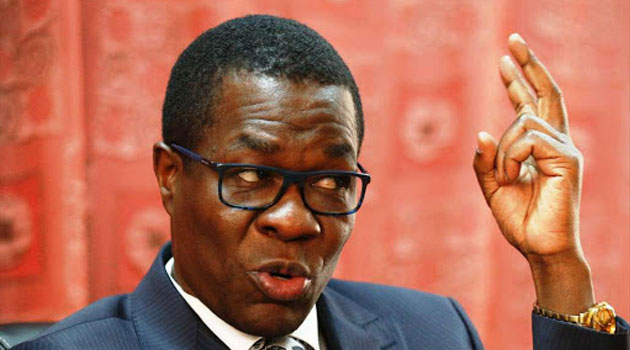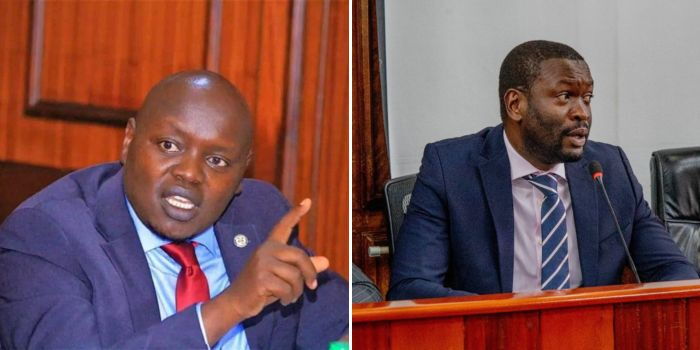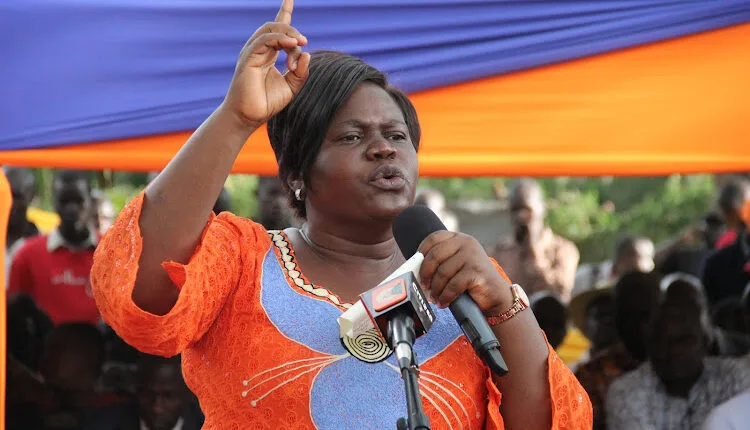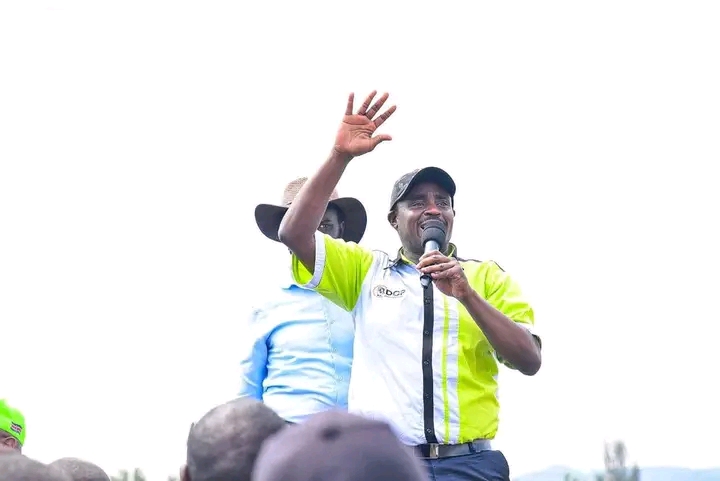CS Wandayi Defends Petroleum Levies as Key to National Development Amid Soaring Fuel Prices
Energy CS Opiyo Wandayi has defended fuel levies, saying they fund essential services like road maintenance and energy infrastructure. He urged critics to propose viable alternatives instead of blanket opposition. His remarks follow public outrage over rising fuel prices, largely blamed on heavy taxation.
Opiyo Wandayi: We have agreed with the Energy Committees of both Houses, the National Assembly and the Senate, that we...
Posted by Spice FM on Monday 21 July 2025
Energy and Petroleum Cabinet Secretary Opiyo Wandayi has mounted a strong defence of the numerous taxes and levies slapped on petroleum products, even as Kenyans express growing outrage over the rising cost of fuel. Speaking on Spice FM on Tuesday, July 22, Wandayi argued that while the cost of living is high, the fuel levies are not imposed arbitrarily. Instead, he said, they are carefully structured to support crucial government services, such as road maintenance, energy infrastructure, and economic development projects that touch the lives of millions.
Wandayi maintained that while consumers are justifiably concerned about high fuel prices, it is important to look at the bigger picture. “These levies are not just about revenue collection,” he said. “They are about sustaining essential services across the country. Without them, projects such as road repairs, electrification, and energy access in remote areas would stall.” He admitted that the burden may be heavy for many Kenyans but urged for informed debate rather than emotional reactions. He welcomed public input and said the ministry is open to reform proposals—but only if those proposals are accompanied by viable alternatives for raising revenue.
His remarks came just days after the Energy and Petroleum Regulatory Authority (EPRA) announced a fresh round of fuel price increases, sparking widespread criticism from civil society, transport operators, and ordinary citizens. Many blamed the high cost of fuel not just on global crude oil prices but primarily on the numerous taxes and levies layered onto each litre of petrol and diesel. Currently, more than 10 different levies are applied to fuel in Kenya, including the Road Maintenance Levy, the Petroleum Development Levy, the Railway Development Levy, and VAT—making up a significant portion of the final pump price.
Energy experts have described Kenya’s petroleum taxation model as punitive and inflationary. Petroleum Outlets Association of Kenya Chairperson Martin Chomba argued that the government continues to treat fuel as a “low-hanging fruit” for raising funds. “Every time there’s a budget shortfall or a need to fund new projects, the petroleum industry is targeted,” Chomba said. “We’ve seen new levies being introduced quietly—like the Sh7 levy sneaked in by a former Transport CS just before the Cabinet reshuffle. That alone pushed fuel from Sh179 to Sh187 per litre. It’s unfair to consumers.”
Chomba added that such practices create an unsustainable economic environment where essential commodities become unaffordable. He urged the government to adopt a more transparent and consultative approach in adjusting fuel-related charges and to explore alternative revenue sources that don’t disproportionately affect the common mwananchi.
Despite these concerns, CS Wandayi insisted that most of the levies serve a justified, development-focused purpose. He specifically defended the Road Maintenance Levy, saying although it is collected by the energy sector, it is administered by the Ministry of Roads and directly funds the upkeep of the countrys extensive road network. He emphasized that removing such levies without a solid fallback plan would leave critical government operations underfunded.
In response to the growing public discontent, Wandayi posed a challenge to critics: “If we are going to reduce or eliminate these taxes, then what mechanism do we propose to replace them? Are we willing to risk the collapse of the very services that these funds support?” He said the government is not deaf to the concerns of the people but urged citizens and stakeholders to be part of the solution through constructive policy suggestions.
As Kenya grapples with a tough economic climate, the debate over fuel taxation is expected to intensify. While the government defends the levies as necessary for development, critics argue they are exacerbating the cost-of-living crisis. Whether a balanced, people-centred approach can be reached remains to be seen in the weeks ahead.













